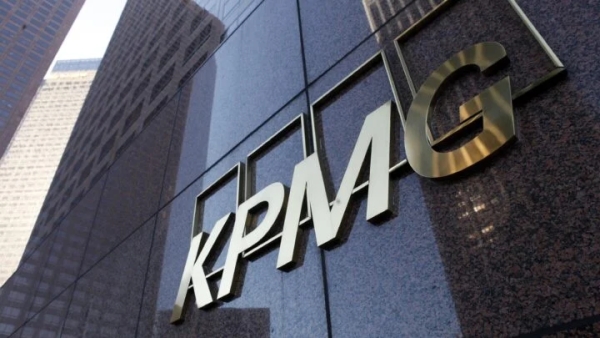KPMG Nigeria says the implementation of the cybersecurity levy should be reconsidered due to the current economic climate.
On May 6, the Central Bank of Nigeria (CBN) directed deposit money banks (DMBs) to start charging a 0.5 percent cybersecurity levy on electronic transactions, in line with the Cybercrime Act 2024 as amended.
Speaking on the directive in its latest tax alert issue, KPMG said this is certainly “not the right time to implement this levy”.
The firm added that although the idea was not new, it was unjustified under the prevailing economic condition.
KPMG said the key objective of the cybercrime levy is to ensure that there is dedicated and adequate funding available to address the growing threats of cyber-attacks.
However, KPMG said higher taxes do not lead to sustainable growth, adding that no country can tax itself to prosperity.
According to the firm, unintended consequences of any measure must be thoroughly evaluated before implementation.
“Undoubtedly, Nigeria faces a significant revenue challenge. This has, therefore, constrained, and continues to constrain, the country’s capacity for achieving sustainable growth,” KMPG said.
“Given this context, the government may go to any length to mobilise the required revenue.
“Perhaps, it is in recognition of this that the current administration and the Presidential Committee on Fiscal Reforms have often emphasized that the government will not introduce new taxes. Though the cybercrime levy is not new as it has been in existence since 2015, the question is why implement it now given the prevailing economic challenges?
“The timing of any reforms is essential to the success of such reforms. This underscores the current public resistance to the implementation of the levy.
“Hopefully, the National Insurance Commission (NAICOM) and the Nigerian Communications Commission (NCC) will consider this before introducing their guidelines with respect to those businesses under their purview.
“However, consideration must be given to the country’s prevailing economic conditions. The current economic climate does not justify its implementation now.”
FG SHOULD FOCUS ON TAX REFORMS THAT ADDRESS REVENUE LEAKAGES
KPMG said the federal government should focus on reforms that address revenue leakages and be financially prudent in the utilisation of public funds.
“Various reports have indicated that the government will raise about N3 trillion annually from the levy,” the firm said.
“However, there has been no formal presentation to the public of the cost and benefit analysis. It is always critical that the enactment of any tax or levy be accompanied by the tax expenditure statement to provide information as to whether the benefits of such tax or levy outweigh its cost.
“It is not sufficient to provide only the revenue projection, which is not certain as no details have been provided with respect to this; albeit there have been reports on how the money would be spent.
“There are many government agencies that have not been audited for years and nothing has happened! It is, therefore, critical that practical measures be put in place to ensure transparency and accountability.
“Hopefully, the government will reconsider delaying the implementation of the levy, which has been in the books since 2015.
“Government should focus on tax reforms that address revenue leakages and be financially prudent in the utilisation of public funds.
“Combining revenue-raising initiatives with responsible spending practices is essential for fiscal sustainability.”
The firm also raised concerns that businesses may resort to any measures to avoid the payment of the levy.
KPMG also said it is important that the government consider phasing in tax reforms on a gradual basis to minimise potential shocks to the economy.


